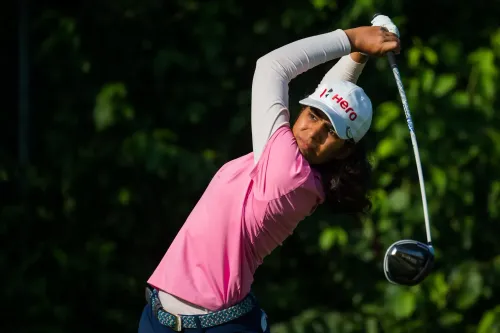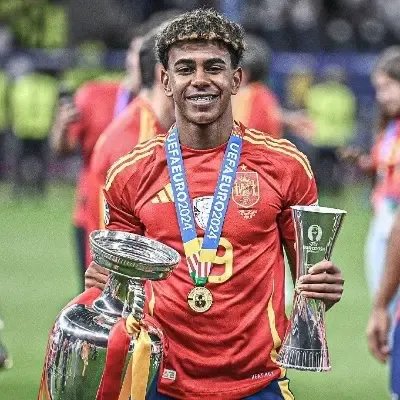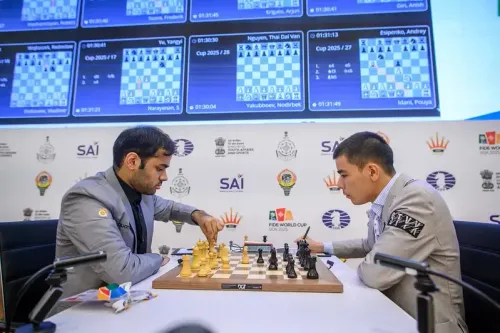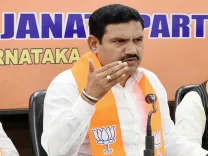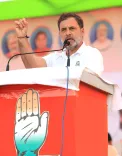Sunil Joshi Highlights the Absence of a Left-Arm Seamer in India's Bowling Attack During BGT
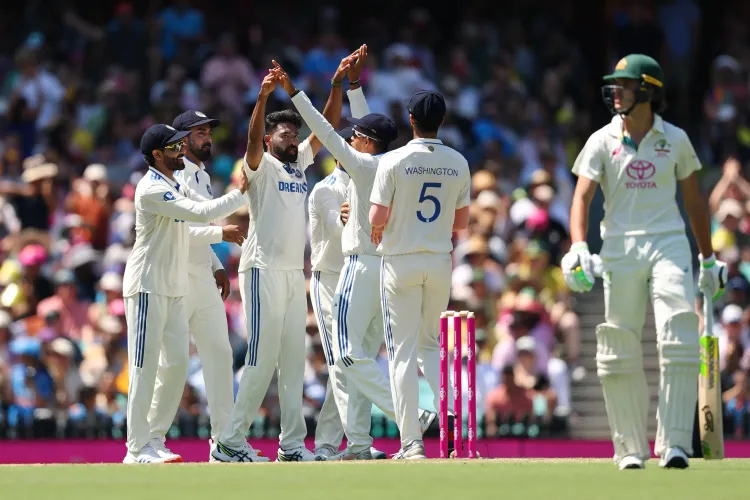
New Delhi, Jan 9 (NationPress) India's remarkable Test series triumphs in Australia were significantly shaped by their strong bowling unit. Nevertheless, the disparity between Jasprit Bumrah and the other bowlers became evident in their recent 3-1 Border-Gavaskar Trophy defeat to Australia.
While Bumrah excelled with an outstanding performance, claiming 32 wickets in 151.2 overs at an average of 13.06 and a strike rate of 28.4, India’s other pace bowlers, including Mohammed Siraj, Akash Deep, Prasidh Krishna, Harshit Rana, and Nitish Kumar Reddy, managed only 40 wickets in 351 overs, with an average of 34.82 and a strike rate of 52.6.
The inexperience of the pacers and the over-dependence on Bumrah raises concerns about India’s fast-bowling depth for the future. Sunil Joshi, a former Indian spinner and chief selector during India’s 2-1 series win in Australia in 2020/21, expressed optimism about the fast-bowling prospects but acknowledged that India missed a left-arm seamer in their squad.
"No, because we already have Troy Cooley, who has been at the NCA and is overseeing the fast bowling pool. So, I don’t think there should be any concern. But we definitely missed having a left-arm seamer in that line-up.
"If a left-arm seamer had been present, it would have introduced some variation in angles, as many Australian, English, or New Zealand batsmen are less comfortable facing left-arm seamers due to the different angle at which the ball moves away from them.
"We needed that variety; unfortunately, both Yash Dayal and Khaleel Ahmed were available, but they couldn’t participate, which is unfortunate," Joshi shared in an exclusive interview with IANS.
Joshi reminisced about the 2020/21 series, during which India faced numerous injuries, yet the net bowlers who traveled ended up playing, excelling, and contributing to victories. Aside from the recent performances, India also fell short tactically against Australian batters, particularly concerning their field placements and bowling changes.
"It’s all about each individual player showing character while on tour. Did we prepare adequately? I believe we did. Did we take responsibility? Absolutely. The key question is whether we learned anything from the opposition during this tour, from the first Test match to the second and third matches?
"If we learned from the opposition, then yes, we could have been more consistent and performed better. If we did not learn, we need to explore that, maintain discipline, and put in the necessary effort to yield results, and that’s how I assess this tour.
"Tactically, when things don’t go as planned, we will be scrutinized. Conversely, if it goes well, we attribute it to effective tactics used. We must analyze what the opposition did effectively and consistently. For instance, one can observe their fast bowlers or even Nathan Lyon - he didn’t do anything spectacular, just maintained his patience and consistency. Did we do the same? No, aside from Bumrah.
"Again, aside from phases, we have shown consistency through Nitish, Siraj, Prasidh, or Harshit Rana. Ultimately, we need to introspect whether we gave our best effort in terms of discipline. Did I fulfill my role clearly within the team? I’m not viewing it from an outsider’s perspective.
"I ask myself, ‘Did I put forth my best effort? Did I bring my A-game and maintain discipline in these situations? Did I clearly play my role, or should I have acted differently?’ These are the essential details because breaking down these elements will lead to understanding," he elaborated.
Another unexpected development that caught Joshi off guard during the Australia tour was the sudden retirement of off-spinner Ravichandran Ashwin from international cricket after the third Test at the Gabba, a match he did not participate in.
"I was also surprised by that, as I’m not aware of the circumstances that led to this decision between the second and third Test matches. However, Ashwin has always been straightforward in his choices. Therefore, I’m not suggesting it was a poor decision.
"We must respect his decision, as he is undoubtedly a modern legend of the game. However, it raises questions about what prompted him to make such a choice. Clearly, the board, selection committee, and team management ought to provide clarity on this matter," he concluded.

